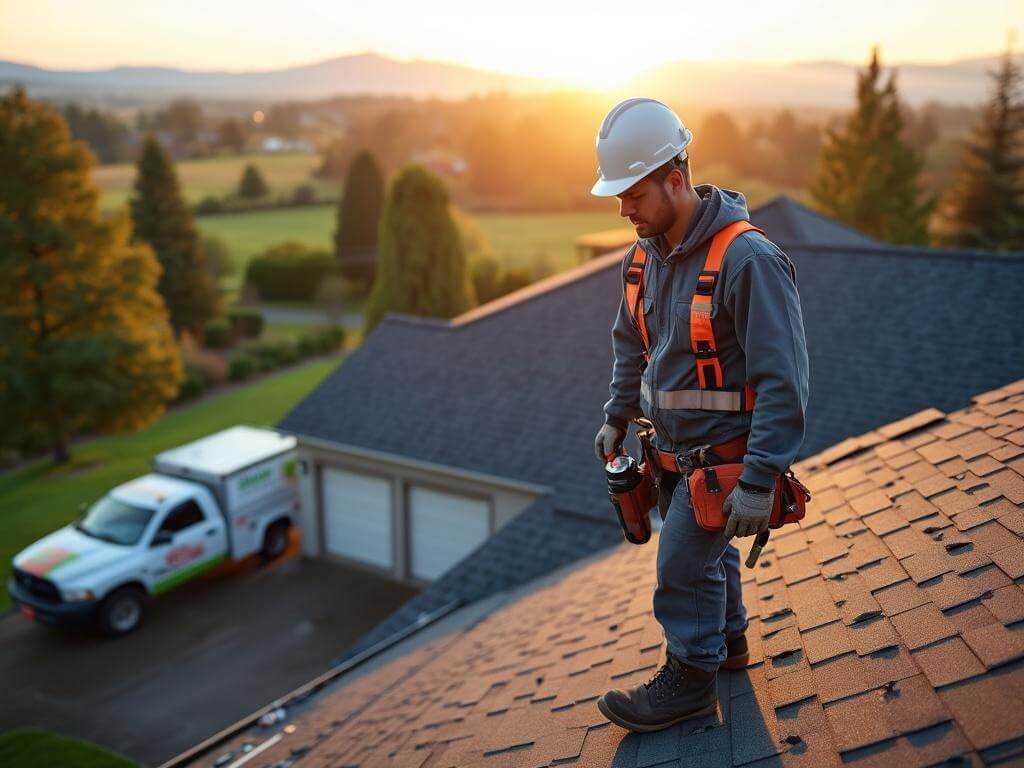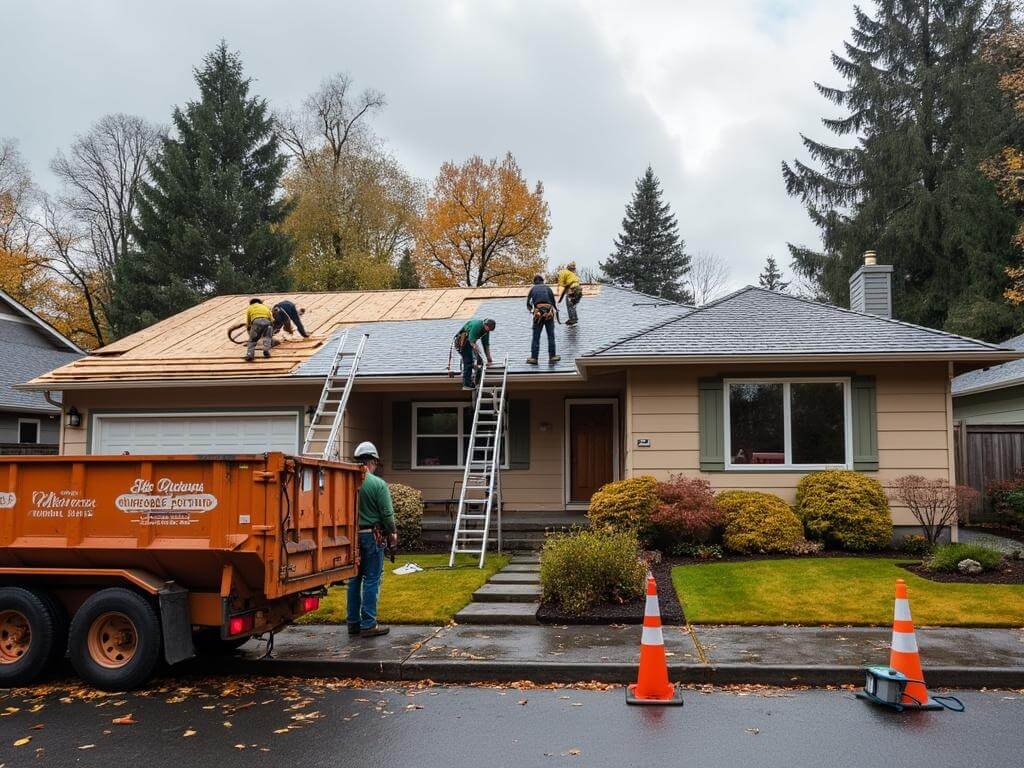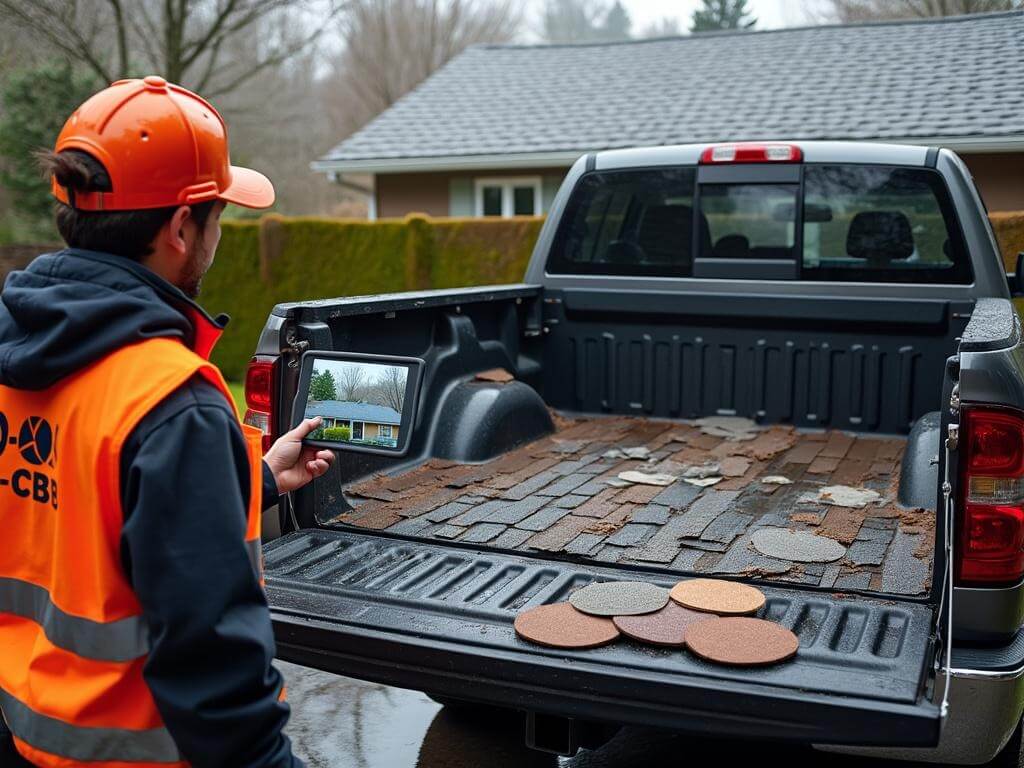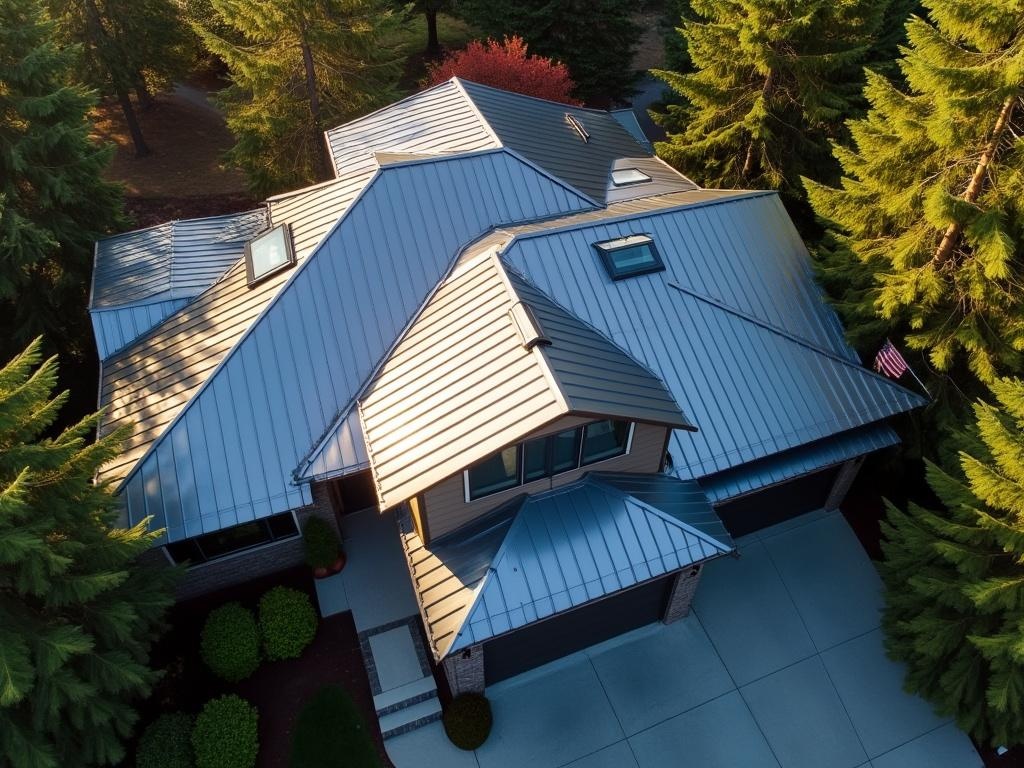July 23, 2025

Let me level with you—finding the best roofing company in Corvallis, OR can feel like dating in your 30s.
Everyone claims to be “the one,” but most fall short on follow-through.
You want someone licensed, accountable, and communicative—someone who actually shows up when they say they will and doesn’t cut corners with duct tape and a ladder from 1994.
Here’s how I break it down, based on years in the construction world and my own personal roofing saga in Benton County.
We don’t get soft, sunny weather year-round around here.
Corvallis sees heavy rainfall, unpredictable winds, and the occasional snow dump. And that means your roof takes a hit—especially if it’s older or was installed by someone cutting corners behind a pickup truck.
If your roof fails, it doesn’t just drip—it can silently rot your attic, ruin insulation, and crash your resale value fast.
A dependable roofing contractor isn’t just about patching leaks—it’s about protecting the biggest asset you own.
And in Corvallis, there’s the regulatory layer too: all roofing contractors are required to hold active Oregon Construction Contractors Board licenses with proper insurance. No license? No deal.
Takeaway: Your roofer should bring more than a ladder—they should bring permits, proof, and pride in what they do.

Here’s what the top roofers in Corvallis consistently do well. If a company doesn’t offer these, keep scrolling:
Personal story—I once hired a “handyman” in a pinch after a moss storm ripped up three shingles on my rental. He showed up late with the wrong color shingles, charged me cash, and ghosted after one day’s work.
Three months later? Leak from improper sealing. Water in the ceiling. I had to redo the entire section.
Lesson learned: Call professionals with local referrals and proper warranties.
You wouldn’t hand over your car to an amateur mechanic with no reviews, right? Same rules here. Ask:
If they hesitate on any of those, move on. Transparency up front avoids complaints later.
Takeaway: References, warranties, training, and clarity—those are your vetting pillars.

This is where great customer experience shines.
Here’s what top roofing companies typically deliver in Corvallis from day one:
This isn’t a mystery process, and your roofing company shouldn’t make it seem like one either.
Takeaway: The best firms lead with clarity, stick to timelines, and finish strong—no drama, no dodging.
Let’s pivot to a question I get constantly:
“When should I replace my roof?”
Fair question. And a critical one.
Because waiting too long isn’t just risky—it gets expensive fast.
You might not notice the damage until it ruins your ceiling drywall… or your neighbor sees moss growing three feet tall.
Here’s your quick skip-the-guesswork list.
If you spot any of these? Time to call a local roofing company for inspection:
Bonus: After major storms (especially wind events), always check for damage or invite a roofer for post-storm inspection.
Takeaway: Your roof talks. Don’t wait until it yells—check early and fix before damage spreads.
You’ve seen a leak. So should you fix a patch or go full replacement?
Here’s how I break it down:
Your roofing contractor can help you make the call based on a proper inspection, but don’t fall for “it’s fine” if deep rot or poor ventilation is the core issue.
Most Corvallis roof damage I’ve seen comes from two things: moss buildup and slow leaks that go ignored for years.
Protect your house’s guts—know when replacement makes more financial sense than chasing spot fixes.
Takeaway: Repairs are band-aids. Replacement’s the surgery. Know when you need a patch vs. an overhaul.
Here’s the thing: roof replacement happens year-round in Oregon.
But there’s a sweet spot.
Between mid-May and early October, the weather plays nicest.
Mild temps, less rain, and longer daylight help contractors finish jobs faster and with fewer delays.
That said, a strong crew with the right supplies can replace your roof almost any time—just be ready to schedule early in high-demand months.
If a storm hits and you need emergency work? Local roofers prep for that too. But coverage is limited during peak urgency, so having someone on speed dial is huge.
Takeaway: Spring through early fall is prime time. But your roof doesn’t care about “ideal”—stay ready.
Let’s talk next-level roofing.
Not gimmicks. Not overpriced materials. I mean smart, modern upgrades that actually improve your home.
Whether you’re replacing out of necessity or just planning ahead, these are the roofing trends in Corvallis that savvy homeowners are leaning into—and why I think you should, too.
Oregon homeowners are becoming more energy-conscious, and Corvallis is no exception.
Especially if you’re in a neighborhood with tree coverage and shade variation, a cool roof system using reflective shingles can significantly lower attic temps—especially in metal or composition roofs.
I’ve seen power bills drop 10–15% just from upgraded insulation combined with higher reflectivity.
Some options to keep in mind:
Quote I heard once from a supplier that stuck with me: “A roof can trap heat… or save it for you.”
Roofing isn’t just weather protection. It’s energy strategy.
Takeaway: Think beyond the shingles—a smart roof helps fight mold, heat loss, and rising utility bills.

Here’s something else most people don’t expect:
Top roofers in Corvallis aren’t just running nail guns. They’re using drones.
A reliable company now starts with aerial photography to assess damage, measure square footage, and spot sagging or ponding on low-slope roofs.
That means:
Some even offer client portals with real-time project updates. You’ll know exactly when delivery’s scheduled, how long the crew needs, and when cleanup begins.
Honestly? It's way less stress than the “wait and wonder” approach most people assume.
Takeaway: The best roofing contractors don’t just swing hammers—they run efficient, tech-forward operations with clear communication.

This is a big one—and often overlooked until it’s too late.
Once your new roof is installed, your job isn’t done.
Maintaining it over time is what keeps the system in peak condition and prevents warranty issues down the line.
Here’s what I advise every homeowner (based on hard lessons and a stormy March in 2020 that wrecked my gutters):
And please—don’t neglect tree coverage.
Branches scraping your shingles in a windstorm cause more long-term damage than you’d think.
One customer in my neighborhood had squirrels chew a small hole right under a cedar limb… and insurance wouldn’t cover it because of “preventable damage”.
Ouch.
Takeaway: Prevent damage before it starts—schedule routine cleanups and inspections.
I’ll say it plainly:
Out-of-town roofers might offer flashy deals—or leftover materials from another job—but they don’t live here.
They’re not held accountable by your neighborhood Facebook group.
They won’t be around in six months if there's an issue with your install.
In contrast, every reputable roofing company in Corvallis has community skin in the game.
They drive past your job site every day.
They hire local crews. They care about reputation.
When my cousin used a cheap outfit from Wilsonville after a referral-gone-wrong? He saved about $700… but ended up with poor flashing and an unfinished ridge cap.
Guess who had to pay another crew to fix it 10 months later?
Takeaway: Stay local. Your roof deserves someone who sleeps in the same zip code you do.
Before you say yes to anything—from inspection to material order—make sure your roofing agreement is airtight.
This isn’t buzzkill advice—it’s your best safety net.
Quick checklist:
If something feels vague, ask. Good roofers won’t hesitate to walk you through it line by line.
Takeaway: Your contract is your shield—don’t skip it.
Done right, your roof should last decades—not just a few seasons of Oregon rain.
If you're ready for reliable help without the guesswork, reach out to a trusted, local roofing company in Corvallis, OR—and get it done right the first time.